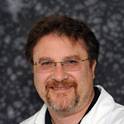| Present | Associate Professor, Biochemistry and Microbiology, Marshall University | |
|
|
||
Disciplines
Research Interests
Honors and Awards
- grant reviewer for the Italian government Ministry of Research (MIURC), 2012
- Joint Pilot Research Program grant
- two U.S. Provisional Patent Applications
Contact Information
Phone: (304) 696-3516
Fax: (304) 696-3713
Email:
